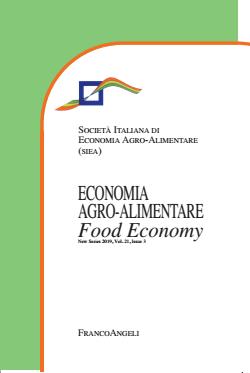
The challenges for a sustainable agro food system development in Italy and even beyond: The process of globalization and liberalization of markets has in place a number of new competitive scenarios and outlined new paths for sustainable economic development. These processes of change have been dictated primarily by the emergence of new social sensitivities related to the environment and to the health-nutrition-wellness report by the postmodern consumer, that concerned mostly businesses and food industry. The nutrition-health relationship, climate change, the depletion of natural resources, destruction of the landscape, the loss of the identity and rural history, are issues that have gained a central role in determining the "quality of life" and the socio-economic and territorial balance, affecting substantially on purchase and consumption behavior and on the rediscovery of the Mediterranean Diet. In particular, and especially for food products, it is increasingly asserting a consumer style health-oriented models that are referring to the culture of the Mediterranean diet, which is not only healthy products linked to specific areas of origin and technical specifications processing. Today the consumer is more and more interested, to know the origin of the product and / or the raw material, its link with the territory of reference, the production process, the distance from the place of production, the protection of human rights, biodiversity, animal welfare, etc. This new consumer behavior has created a theoretical and institutional debate aimed at identifying regulatory and business approaches inspired more and more to the logic of economic sustainability of development processes. The main task of the paper, therefore, is to offer a series of reflections on the issue, highlighting the centrality and also the contributions in the field of scientific societies.